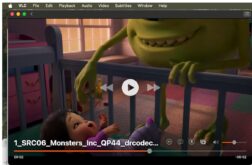Earlier this week, I posted a column relating to Silverlight observations made while teaching a seminar at Stanford. My colleague, Stefan Richter, posted a snippet of the column on his site, www.flashcomguru.com, a premiere learning site for Flash developers. One of his readers pointed to another web site that presented a detailed technology comparison. The author, Alex Vandenberg, concluded that:
Ultimately for me the choice comes down to what you’re trying to achieve. At this stage if looks are your only concern, then Flex probably has an edge. However if you’re looking to build complex business functionality and are concerned with value for money then I think Silverlight offers a better value proposition. This is primarily due to the resultant code base that you would have with a Silverlight project; simpler, higher level, more maintainable and robust code. As complexity increases, so does the importance of having a well structured codebase. Without this the number of bugs and regressions can grow exponentially, in turn driving up development cost.
I’m biased, I’ve developed with C# for years and I’ve enjoyed doing so. Coming over to Flex I’ve felt like I’ve been working with an arm tied behind my back. It’s frustrating to be in an environment delivering a small fraction of what you know you could be achieving. Having said that, this particular Flex application is the best looking application I’ve ever seen!
I thought this presented a nice counterpoint to my column, and wanted to make it available to my readers. You can read the complete post here. Note that there was a fairly lively discussion about the points Alex made in the comments beneath the article.
Nothing Alex says convinces me that Silverlight makes sense for most external website today, but it does outline the value that Silverlight can deliver for internal web sites, and perhaps external sites once player penetration exceeds 80 – 90%.
 Streaming Learning Center Where Streaming Professionals Learn to Excel
Streaming Learning Center Where Streaming Professionals Learn to Excel








